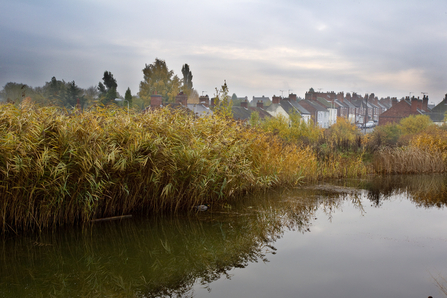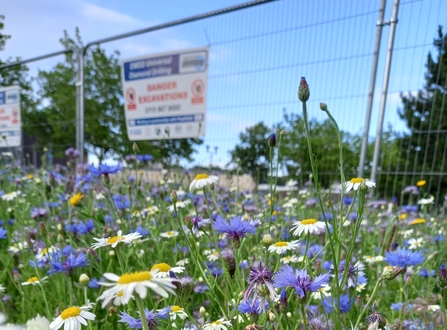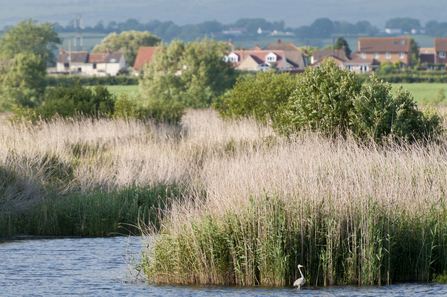
Photo: Ben Hall/2020Vision
(C) Ben Hall/ 2020VISION

Photo: Ben Hall/2020Vision
The Planning and Infrastructure Bill would enable developers to sidestep vital environmental regulations. The change in law would allow developers to destroy important habitats without assessing what wildlife lives there, provided they pay into the newly established Nature Restoration Fund, which will be managed by Natural England.
Sustainable development can go hand-in-hand with nature conservation, but the Government’s approach makes a scapegoat of nature and threatens the long-term health of our planet and economy.
BBOWT’s Chief Executive, Estelle Bailey, said:
“Our natural world underpins every element of our economy, and if we want long-term sustainable growth, we must invest in nature. We know that a thriving economy depends on a thriving natural world, but Keir Starmer is bizarrely pushing a false choice between protecting nature and building homes. This is an unnecessary and divisive rhetoric – the two can and must be considered together.”

Eden Jackson
The Government is attempting to cover its tracks by establishing the Nature Restoration Fund, which will be managed by Natural England. However, their public stance is misleading as they claim that the fund will mobilize private-sector funds to accelerate nature recovery in the UK. This rhetoric is damaging because it falsely suggests that wildlife is being protected when, in fact, the existence of the fund gives developers a free pass to bypass essential environmental regulations. With this new bill, developers will no longer be required to survey sites they plan to build on to assess the scale of their environmental impact.
Additionally, the bill will sever the link between new communities and nature and impose the burdens of development on those in the surrounding area. Meanwhile, they will receive none of the benefits of habitat creation, which would happen elsewhere.
We know that long-term economic growth cannot occur without environmental health. The Government’s growth plans should present an opportunity to rethink how we develop infrastructure so that it is long-lasting and integrated with a thriving natural world. Nature-rich development should not be an undesirable objective, so why is the Government operating on this assumption?

Photo by Ross Hoddinott/2020Vision
BBOWT’s Director of External Affairs, Matthew Stanton, said:
“The system is designed to rush through development, not restore nature. There are plenty of good examples of how housebuilders and those in the environmental sector have worked together to create homes for people and wildlife that represent a true win-win. Seventy-one percent of the UK supports increased planning protections for green and blue spaces, including woodlands, parks, and rivers. Yet the Government’s bill will act against the public interest by fast-tracking nature’s decline, and will discourage innovative, forward-thinking developers from planning with nature in mind. The Government should be pushing up the standards of all developments, not driving them down to match the worst.”
The UK is home to a diverse range of ecosystems that rely on specific environmental conditions. To support a nature-rich climate, we need to consider the unique requirements of local habitats. The Government’s plan to centralize mitigation efforts through the Nature Restoration Fund is short-sighted because it assumes that species will simply relocate to new environments, which is not always the case.

Pyramidal orchid on brownfield site being cleared for development by Terry Whittaker/2020VISION
BBOWT’s Senior Ecologist, Colin Williams, said:
“It can take many years to restore a wildflower-rich meadow and can often be impossible if the ground conditions are unfavourable. Our recent restoration work at Chimney Meadows revealed just how challenging this kind of project is. It is far better to protect what we have than try to replace it elsewhere. Great crested newts, bats, dormice, and water voles are found in specific locations for a reason and so attempting to relocate them will significantly harm their populations. This majorly puts into question the efficacity of the Government’s plans for a centralized Nature Restoration Fund.”
BBOWT is in active discussions with local MPs, urging them to support amendments to the bill. The local wildlife charity is asking members of the public to write to their MPs, emphasizing that nature and the economy must grow together or both will ultimately fail. Guidance and suggested wording for letters can be found here.